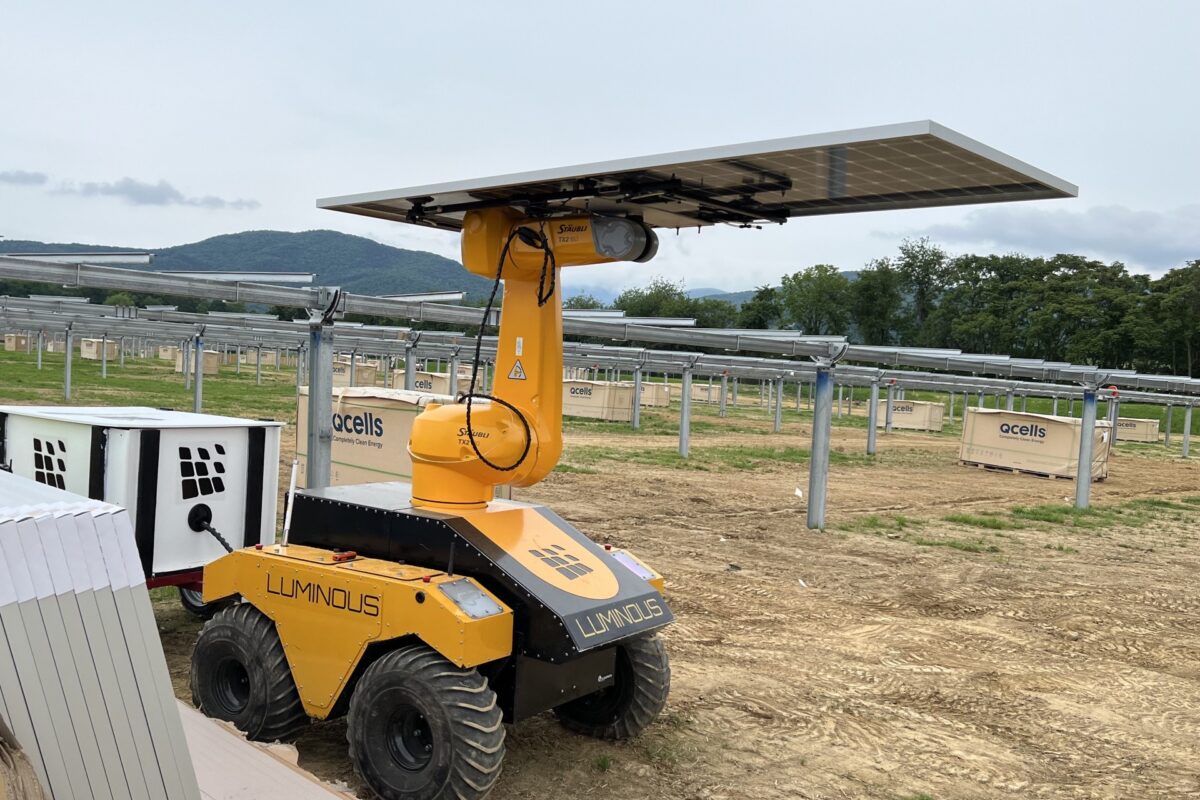South Australian clean-tech company 1414 Degrees has come together with a number of partners to identify and develop “smart farm” projects using its thermal energy storage solution (TESS), which stores electricity as thermal energy by heating and melting containers full of silicon. The company says its TESS technology comes at a cost up to 10 times cheaper than lithium batteries.
Working in collaboration with integrated electrical and electronic technology provider, Ampcontrol SWG, and renewable energy project developer, BE Power Solutions, 1414 Degrees is examining a range of joint project opportunities across Australia, including at a greenfield site in the Northern Adelaide Plains. That project would see the company integrating its grid scale energy storage solution, TESS-GRID, into a protected cropping farm development by Victoria-based horticulture company, Nectar Farms.
“We see enormous synergy between Nectar Farms – which has a stated aim to protect the environment through clean energy, resource conservation and clever planning – and the entrepreneurial model of 1414 Degrees,” said Kevin Moriarty, Executive Chairman of 1414 Degrees. ““The integration of our technologies would result in the first SmartFarm development of its kind globally, delivering another opportunity for our state to lead innovation, address energy costs and stability, and support job creation.”
Two years ago, Nectar Farms unveiled plans to install a wind farm and battery storage to go 100% renewable in a $565 million hydroponic farm expansion near Stawell. According to Moriarty, Nectar Farms is in the process of establishing an $80 million advanced protected cropping renewable powered (SmartFarm) development in Victoria, involving 10 hectares of glasshouses and a large nursery, and is now working on a similar development with 1414 Degrees.
Under a memorandum of understanding inked last week, the companies will seek to obtain a greater understanding of each businesses’ strategies, jointly approach funding agencies and financial institutions, and engage in product development activity, including feasibility, development and construction.
The SA SmartFarm project follows from the ARUP study that concluded 1414 Degrees’ thermal storage solution would be more economical than concentrated solar power as a replacement for fossil fuel-powered advanced greenhouse farms. Early feasibility stages of the northern Adelaide site are expected to progress during this quarter.
The site sits adjacent to a distribution substation at an SA Water site housing a generator embedded on the National Electricity Market, and the plan is to use the substation for electricity supply and generation from the TESS-GRID while providing heat to Nectar Farms.
“We have been modelling the revenues to be expected from operating the TESS-GRID and our smaller TESS-IND technology on the NEM. Scenarios for energy trading range from those based on contracts for supply from an aggregator to direct exposure to wholesale pricing – and combinations of both,” Moriarty said, adding several other development sites in SA and Victoria will be assessed.
Previously, the South Australian government backed 1414 Degrees’ another project – a $3.2 million thermal storage project at the Glenelg Waste Water Treatment Plant, to the tune of $1.6 million. The project was designed to include a 0.25MW/10MWh thermal energy storage device that holds heat generated from the combustion of biogas produced on site.
This content is protected by copyright and may not be reused. If you want to cooperate with us and would like to reuse some of our content, please contact: editors@pv-magazine.com.









” The company says its TESS technology comes at a cost up to 10 times cheaper than lithium batteries.”
The article talks about using heat from the unit for the Nectar Farms and later on talks about storage and electricity generation for the grid. What is the round trip efficiency for this technology?
What parameter was used when this TESS can cost up to 10 times less than lithium batteries? It was stated that the TESLA energy storage system across the Neoen wind farm was $207/kWh for the lithium ion technology back in 2017. Are we actually talking $20.70/kWh for this technology?